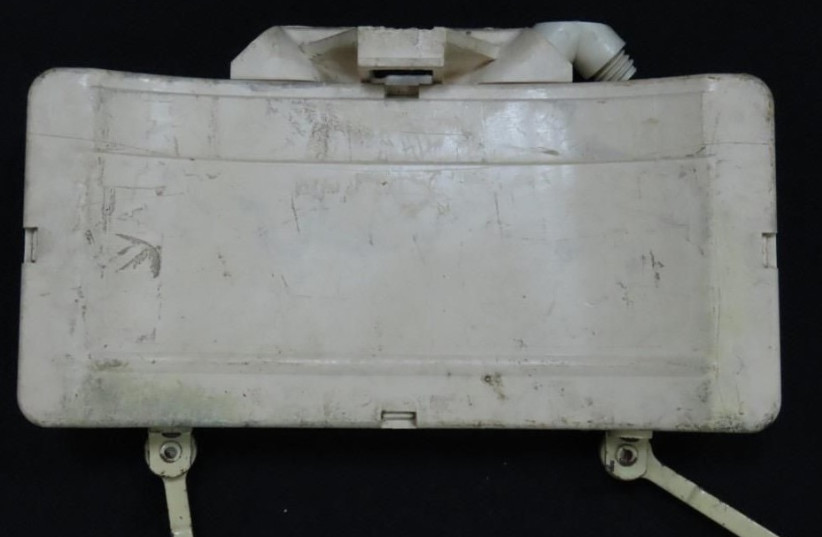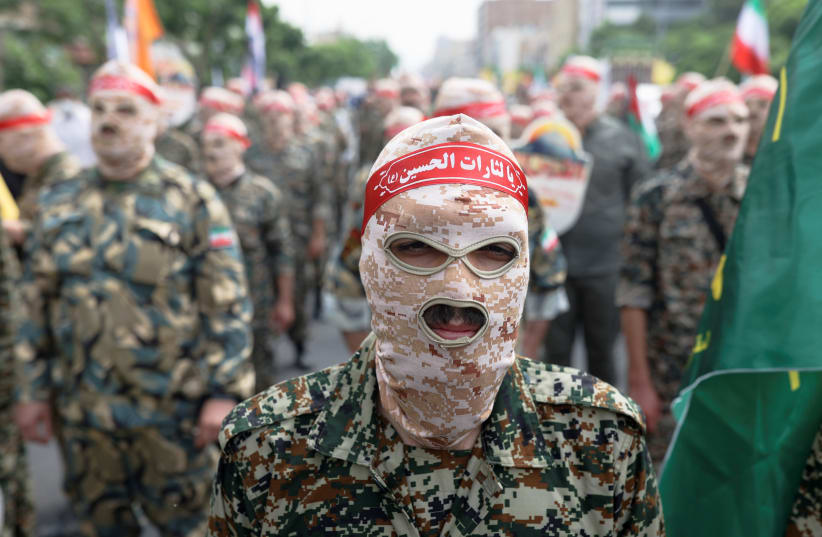Why did KAN News get to report something on Sunday night that a whole group of military reporters had been told about a month ago was under strict gag order?
Did this happen because of some kind of “technical error,” as the censor would claim? Or was it to facilitate the latest government campaign to change the subject from a failure to end the West Bank terrorist attacks to focus on Iran’s involvement in those waves of terrorism?
To answer that, it is necessary to travel back in time by one month.
The Iranian-involved smuggling op. and IDF censorship
Late at night on July 30, the IDF Spokesman’s Office suddenly called an emergency meeting of the special military reporters group.
During the closed-door briefing, it was explained that part of what would be told to the group was under strict gag order for national security reasons.


Essentially, we were told that Israeli security forces had thwarted a July 24 weapons smuggling attempt into Israel from Jordan, but that what was special – and could not be reported – was that it was believed that Iran was behind the smuggling.
Also under gag order was that the explosives themselves were more powerful and complex, part of what led to the belief about more direct Iranian involvement.
We were allowed to publish some details, and The Jerusalem Post did post that some kind of “special” smuggling operation from Jordan had been thwarted.
The rest had to be kept under wraps so that the Iranians and their proxies who were involved and still at large might not fully know the extent of what Israel’s security forces knew, who had been caught, and would themselves remain exposed to being discovered.
It was truly explained as a potential matter of life and death, and everyone was assured that we would all be given the full story to publish at the same time down the road if we all followed the gag order.
Without getting into whether the Israeli censor should exist or not, this is likely a black-and-white case in which – certainly for some period of days or a week – publicizing the full story could have hindered Israel’s security forces from saving lives.
And there are plenty of times when military reporters are given confidential information that cannot be published or will only be permitted to be published collectively at some later hour or date.
What made no sense was why KAN was then allowed to suddenly get a scoop a month later on something that all the military reporters knew.
According to KAN, they simply requested to publish the story every day for a month, and when the censor finally relented, they published.
According to the censor, they did permit KAN to publish the story.
Rather, they had wholesale rejected any publication about the story for a month, and on Sunday night, they finally deleted and altered aspects of the story that KAN filed, but they did so in an artless manner, which KAN was able to use to get the Iranian headline it wanted.
The censor’s staff are human and can make errors, but the problem with this story is the timing.
It just so happens that Sunday was one of the first full news days since Prime Minister Benjamin Netanyahu and Defense Minister Yoav Gallant held a special press conference at the end of last week to try to refocus attention for West Bank terrorism on Iran.
There is another possibility.
Around the same time that Netanyahu and Gallant made their declarations, the Shin Bet (Israel Security Agency) last Thursday announced a different series of arrests of Arab Israelis and others in Lod and elsewhere who were accused of working with Hezbollah and Iran.
That group also was caught with Iranian explosives.
Perhaps the censor got less tight-lipped with KAN after that announcement because maybe that blew the lid off keeping any investigation quiet.
All signals from the IDF Spokesman’s Office, however, was that they had no intention of giving the promised full details in a briefing to the military reporters on Sunday night. In fact, given the dearth of details in the KAN report, all signals were that removing the gag order for the whole group was probably still some weeks away.
If anything, this makes it look like the timing of the Shin Bet’s announcement of the Hezbollah-Iran bust may have been moved forward to come in line with the Netanyahu and Gallant campaign.
Why does all of this matter, besides addressing the censor’s improper treatment of most of the Israeli media on Sunday night (for whatever the reason)?
Because the real narrative with Palestinian terrorism is that Israel’s security forces are doing remarkably well, despite failing to stop a small percentage, and that the small percentage is still so big that it has made the terrorist wave that began in March 2022 and continues to the present day the worst since the Second Intifada.
The political echelon has tried some modest “carrots,” including economic incentives for the Palestinians, and some limited “sticks,” such as undertaking a two-day massive operation in Jenin in July – but with little notable since then.
There is no broad diplomatic or military vision that the government is preparing; rather than make a decision to do something larger in the diplomatic or military arena, there is an attempt to change the focus to Iran.
Of course, Iran is involved. Of course, its involvement makes Palestinian terrorism worse.
But the vast majority of Palestinian terrorists are homegrown, and many are lone wolves who are not connected to any organized terrorist group.
Avoiding the hard choices and the cardinal issue of how to get the wider Palestinian population to end their waves of terrorism by blaming everything on the Islamic Republic will not make things better.
Playing games with the censor and when select Israeli security busts occur – if such games are being played – does not help either and raises credibility issues.
